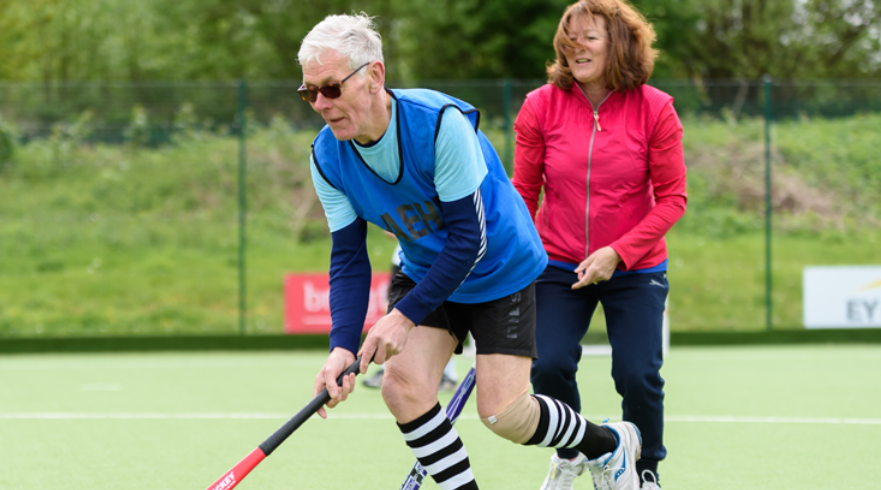Sports have long been celebrated for their ability to entertain and unite people. But beyond the thrill of competition, sports hold incredible power to transform both mental and physical health. Whether you’re chasing a goal on the field or simply playing for fun, engaging regularly in sports provides a wealth of benefits that extend deep into overall well-being. This comprehensive guide explores the remarkable ways sports improve mental and physical health, supported by science, and offers practical tips to help you start or maintain an active lifestyle.
The Physical Benefits of Playing Sports
Cardiovascular Health Improvement
One of the most significant benefits of sports is the boost they provide to cardiovascular health. Activities like running, swimming, and cycling increase heart rate, which improves blood circulation, lowers blood pressure, and reduces the risk of heart disease. Regular participation strengthens the heart muscle, making it more efficient at pumping blood.
Strength and Muscle Development
Sports that involve resistance, such as weightlifting, basketball, or martial arts, help build muscle strength and endurance. They promote healthy bone density and muscle tone, which are essential for mobility and injury prevention.
Weight Management and Metabolism Boost
By burning calories and stimulating metabolism, sports help maintain a healthy weight. Consistent physical activity prevents obesity, a leading cause of many chronic diseases.
Improved Coordination and Flexibility
Many sports require hand-eye coordination, balance, and quick reflexes, improving motor skills that are vital in daily life. Sports like tennis or gymnastics enhance flexibility and agility.
Enhanced Immune System
Regular physical activity from sports strengthens the immune system by increasing the circulation of immune cells, helping your body defend against illnesses.
See also: The Evolution of Sports: From Ancient Games to Modern Competitions
How Sports Boost Mental Health
Stress Reduction and Anxiety Relief
Playing sports decreases cortisol, the body’s stress hormone, helping to reduce anxiety levels. Physical activity also provides a healthy outlet for pent-up tension.
Elevation of Mood and Fighting Depression
Sports trigger the release of endorphins, the body’s natural mood elevators, which can help ease symptoms of depression and create feelings of happiness and well-being.
Cognitive Function and Brain Health
Engaging in sports stimulates neurogenesis—the creation of new brain cells—and enhances cognitive functions such as memory, focus, and problem-solving.
Building Self-Esteem and Confidence
Achieving goals, improving skills, and overcoming challenges in sports contribute to greater self-confidence and a positive self-image.
Social Interaction and Support Networks
Team sports and group activities provide social interaction that helps combat loneliness and builds supportive relationships, essential for mental health.
The Science Behind Sports and Well-being
Endorphins and the “Runner’s High” Explained
During exercise, the brain releases endorphins, which act as natural painkillers and mood enhancers, producing feelings often described as a “runner’s high.”
Neurotransmitters: Dopamine, Serotonin, and More
Sports regulate neurotransmitters like dopamine and serotonin, chemicals responsible for pleasure, motivation, and mood balance.
Impact on Neuroplasticity and Memory
Physical activity increases brain plasticity, supporting learning and memory by strengthening neural connections.
Types of Sports and Their Specific Benefits
Team Sports: Soccer, Basketball, Volleyball
These encourage cooperation, communication, and camaraderie while delivering intense physical workouts.
Individual Sports: Running, Swimming, Tennis
They focus on self-discipline, personal goals, and intrinsic motivation.
Mind-Body Sports: Yoga, Martial Arts, Dance
Combining physical movement with mindfulness, these sports reduce stress and improve balance and mental clarity.
How to Choose the Right Sport for Your Mental and Physical Health
Choosing the right sport depends on your interests, fitness level, health conditions, and goals. It’s important to try various activities to find one that brings you joy and motivates you to stay active.
Tips for Staying Consistent with Sports Activities
- Set Realistic Goals: Start with achievable targets to maintain motivation.
- Schedule Regular Sessions: Treat workouts like appointments.
- Find a Buddy: Exercise with friends to boost accountability.
- Celebrate Progress: Reward yourself for milestones.
- Vary Your Activities: Keep things fresh to avoid boredom.
Overcoming Common Barriers to Participation
Many people face challenges like lack of time, motivation, or fear of injury. To overcome these, prioritize your health, start slowly, seek support, and remember that any movement is better than none.
Incorporating Sports into a Busy Lifestyle
Short, high-intensity workouts or active commuting (like cycling to work) make sports accessible even for those with hectic schedules.
Sports and Mental Health in Different Age Groups
Children and Adolescents
Sports improve focus, social skills, and emotional regulation during formative years.
Adults
They provide stress relief, improve physical health, and enhance work-life balance.
Seniors
Sports maintain mobility, cognitive function, and social connections, promoting a higher quality of life.
Preventing Injuries While Enjoying Sports
Warm up properly, use correct techniques, wear appropriate gear, and listen to your body to prevent injuries and ensure long-term participation.
Nutrition and Hydration for Active Individuals
A balanced diet rich in proteins, carbohydrates, healthy fats, vitamins, and minerals fuels sports performance and aids recovery. Staying hydrated before, during, and after activity is crucial.
Mental Health Techniques to Complement Sports
Practices like meditation, visualization, and positive self-talk can amplify the mental health benefits gained from sports.
How Coaches and Trainers Enhance Mental and Physical Wellness
Trained professionals help ensure safety, provide motivation, and offer skill development tailored to your needs.
Technology and Sports: Tools to Track and Improve Health
Wearables, fitness apps, and smart devices provide real-time feedback on activity levels, heart rate, sleep quality, and more, helping optimize your training and health.
The Role of Sports in Rehabilitation and Therapy
Sports can aid in physical rehabilitation, improve mobility, and rebuild confidence after injury or illness.
Case Studies: Real-Life Stories of Sports Improving Health
Countless individuals have transformed their lives through sports, overcoming mental health challenges and chronic diseases with consistent physical activity.
Sports for Special Populations: Disabled and Chronically Ill Individuals
Adaptive sports programs provide opportunities for people with disabilities or chronic conditions to enjoy physical activity tailored to their capabilities.
The Psychological Impact of Competitive vs Recreational Sports
Competitive sports can drive motivation and discipline but may increase pressure, while recreational sports emphasize enjoyment and social bonding, benefiting mental health differently.
Community and Social Benefits of Local Sports Programs
Local leagues and clubs foster community spirit, encourage inclusivity, and provide safe environments for all to engage in physical activity.
How Sports Can Help Combat Loneliness and Social Isolation
Group sports activities build friendships and a sense of belonging, essential in combating social isolation.
Environmental Benefits of Outdoor Sports on Mental Health
Exercising outdoors connects you with nature, which has been shown to reduce stress, enhance creativity, and promote relaxation.
The Future of Sports in Mental and Physical Health Enhancement
Innovations in sports science, adaptive technology, and inclusive programs promise wider access to the benefits of sports for diverse populations.
Resources to Get Started with Sports Today
Look for local sports clubs, community centers, online tutorials, and health organizations to find the right fit and begin your journey.
Frequently Asked Questions (FAQs)
Q1: How often should I play sports to see mental health benefits?
Aim for at least 150 minutes of moderate-intensity activity per week for noticeable improvements.
Q2: Can sports help with anxiety and depression?
Yes, regular participation in sports can significantly reduce symptoms of anxiety and depression.
Q3: Are team sports better than individual sports for mental health?
Both have unique benefits. Choose based on your social preferences and personal goals.
Q4: Is it too late to start playing sports as an adult?
It’s never too late. Sports benefit all ages and fitness levels.
Q5: How can I avoid injury while playing sports?
Warm up, use proper techniques, wear suitable gear, and listen to your body.
Conclusion: Embracing Sports for a Balanced Life
Incorporating sports into your life is one of the most effective and enjoyable ways to boost both mental and physical health. Regardless of age or fitness level, the benefits are accessible and transformative. From improving heart health to reducing stress and building confidence, sports empower you to live a balanced, fulfilling life. So pick a sport that excites you, get moving, and watch your health soar.


